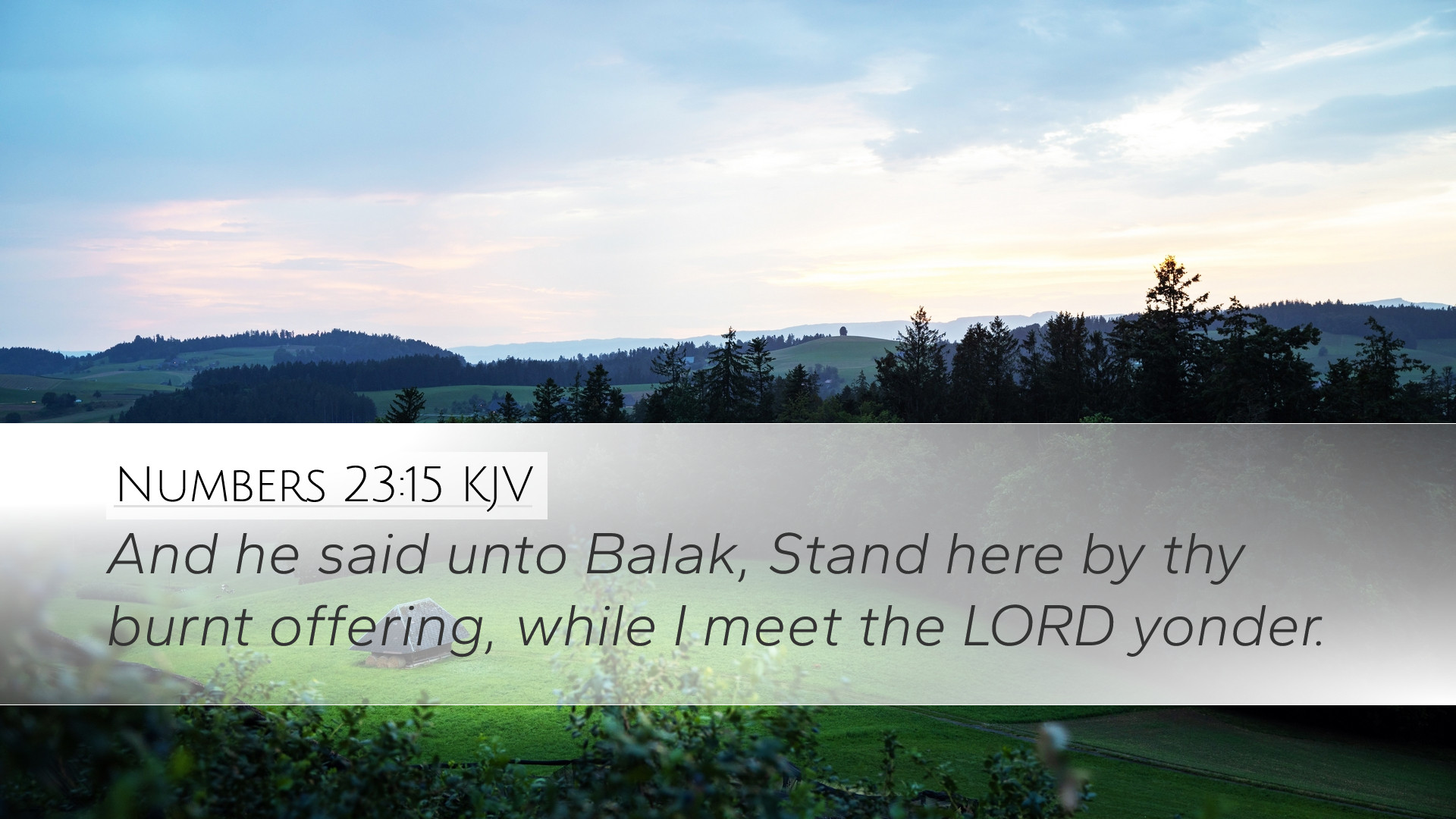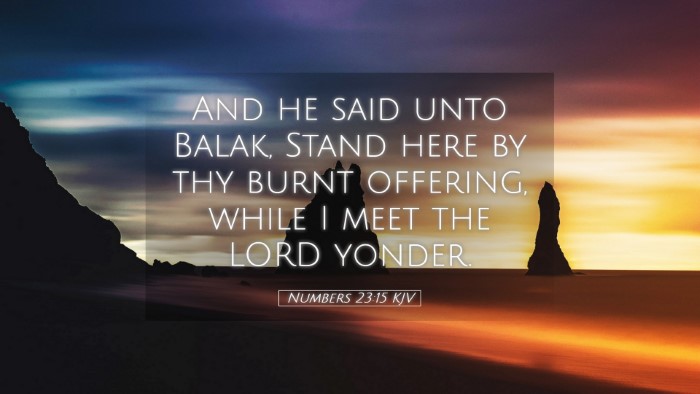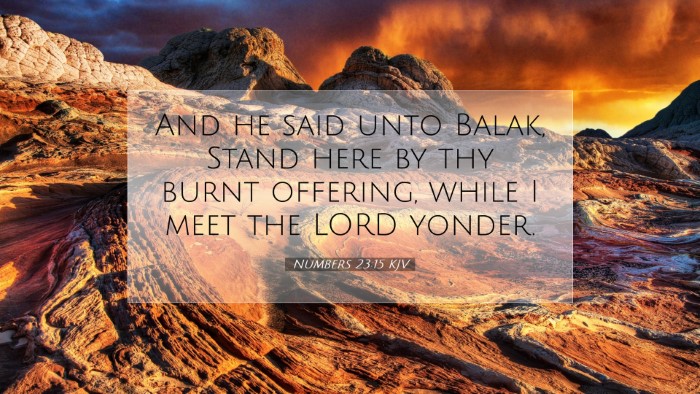Bible Commentary on Numbers 23:15
Verse Text: "And he brought him to the high places of Baal, and he saw from there the utmost part of the people." (Numbers 23:15, KJV)
Introduction
This verse is part of a larger narrative that deals with the interactions between Balak, the king of Moab, and Balaam, a diviner hired to curse Israel. Within this context, Numbers 23:15 emphasizes the pivotal role of location in ancient ritual practices and the divine purpose in all actions. Several respected commentators contribute valuable insights to help understand the implications of this moment in Israel's history.
Contextual Analysis
This verse occurs in the second oracle of Balaam, where the scenery is significant. Balak seeks assurance that Balaam’s curses can affect Israel. The 'high places of Baal' suggest a location dedicated to pagan worship, emphasizing the conflict between the true worship of Yahweh and idolatry prevalent among neighboring nations.
Matthew Henry's Commentary
Matthew Henry remarks on the high places of Baal as places of idolatrous worship. He states that Balak brought Balaam to these heights to show him Israel's encampment, hoping to encourage Balaam's powers to curse them. Henry's analysis highlights the futility of attempting to oppose God's people, noting that the location itself symbolizes the spiritual struggle between the divine and the demonic. His interpretation urges readers to recognize that God sovereignly controls the outcomes and will protect His chosen people.
Albert Barnes' Notes
Albert Barnes adds depth to the interpretation by explaining that the high places were traditionally sites of worship dedicated to various deities, in stark contrast to the worship of the One true God. Barnes interprets Balaam's vantage point as a strategic attempt by Balak to leverage Balaam’s supposed prophetic powers. He underscores how Balaam’s ability to perceive the people of Israel from this position indicates that Balak, through worldly wisdom, was attempting to manipulate divine favor. Barnes emphasizes the idea that God’s blessings cannot be thwarted by human schemes, asserting the power of God’s covenant with Israel.
Adam Clarke's Commentary
Adam Clarke elaborates on the geographical significance of the location chosen by Balak. He indicates that from the high places of Baal, one could see great distances, representing an attempt to gain a divine perspective. Clarke posits that this not only illustrates Balak’s desperation in his conflict against Israel but also signifies the strategic advantage that Balaam was supposed to wield through curses. Clarke further notes that the text reflects upon the misguided belief that spiritual matters can be influenced by geographical or ritual acts, reinforcing the idea that God’s will ultimately prevails.
Theological Implications
Numerous themes arise from Numbers 23:15 that warrant deeper exploration:
- The Sovereignty of God: The overarching theme is the sovereignty of God over both man and the supernatural. Despite Balak’s intentions, the narrative reveals God’s unshakeable position as the protector of Israel.
- The Nature of Idolatry: The high places of Baal symbolize the temptation to blend spiritual practices. This imagery serves as a warning against syncretism, which can dilute true worship.
- The Conflict Between Good and Evil: Balak’s actions reflect a broader human tendency to combat divinely ordained purposes. This conflict acts as a reminder of the cosmic struggle between good and evil.
Application for Pastors and Theologians
In applying the insights gained from Numbers 23:15, pastors and theologians are encouraged to consider the following:
- Understanding Context: Pastors should derive from this passage the importance of context in scripture, emphasizing that worship needs to be rooted in truth.
- Affirming God’s Control: Leaders can use this narrative to bolster the faith of their congregation, reminding them that no external power can curse what God has blessed.
- Sources of Spiritual Influence: Examining the high places metaphorically, churches can address areas of potential idolatry and encourage the pursuit of authentic worship.
Conclusion
Numbers 23:15 serves as a critical reminder within its broader narrative. Through the lenses of respected biblical commentators, one can grasp the profound implications of this verse. The high places of Baal represent not only a physical location but also the spiritual struggles that are ongoing. As pastors, students, theologians, and scholars contemplate these insights, they are encouraged to remember that God's purpose stands resolute against all opposition, and true worship must always align with divine truth.


